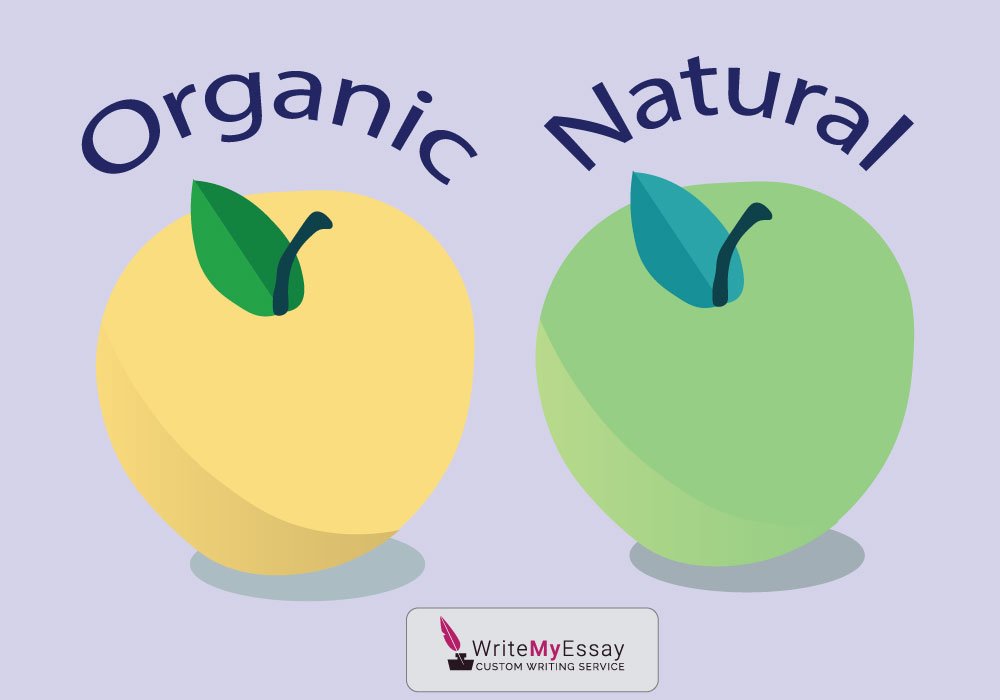Is the term organic the same as natural? essay sample

Buying natural and organic products is the new trend. But can we actually differentiate between the two notions? Decades ago, natural was the only definition of the food produced by farmers in the field. At the opposite side, we had processed food and could easily separate natural products from artificial ones. With every year, food technologies advanced and made it easier to process natural food and enhance it with additives. At this point, consumers started to doubt in the safety of natural food treated with pesticides, antibiotics, and GMO. Products with a long shelf life also raised concerns of healthy eaters. From this point on, “organic” referred to the products raised in non-polluted areas without adding chemicals or fertilizers to stimulate its growth. In other words, “organic” stands for food raised without the latest technologies that simplify the process but reduce the quality of products.
The definition of “natural” is very broad in the US and even in Europe. The FDA does not particularly restrict its use, and brands keep naming highly processed food natural. In food as well as in cosmetics natural indicates that some ingredients were grown in the field. The USDA does not prohibit the application of GMO, pesticides, and antibiotics to natural ingredients, and if raw materials were not exposed to any of these substances, they make up organic food.
Every manufacturer is their own standards of natural and organic food, and still many of them cannot keep up to the governmental standards. But even standards of the USDA make some room for interpretation. Taking something natural or organic from the shelf we never know what we are buying. On average, “natural” products have fewer chances to be safe than “organic”.
